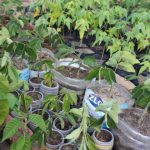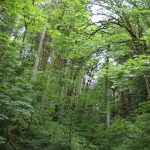June 4, 2018: Global View on Forest Management
International Program: Forest Landscape Restoration, June 2018
In groups of 6, yesterday our drawing skills were put to test. Using Art we did a comparative analysis of how different countries manage their forest resources.

Highlights from most developing countries:
- Rich people benefit more from forest resources than the poor people who most times stay in forested areas.
- Effects of deforestation like mud slides are on the rise.
- More forests are being cleared to pave way for agriculture and urban development.
- Climate change impacts.

The history of forests in every country was on the spotlight.
Prior to British colonization (before the 1890s) Zimbabwean forests were under the custodianship of a King and were available for use by all members of the community. Forests were useful for food, sheltering game, grazing livestock, enhance soil fertility, regulating water/rain, construction timber, firewood, medicines and for worship purposes. Period after 1890s saw the settling of the British Colonialists in Zimbabwe and forest management practices changed.
State Forests were first gazette by the British South African Company as far back as 1930 by its Forest Branch. The creation of the State Forests pushed natives into Native reserves which were not fertile to sustain their subsistence agriculture practices. As a result there has always been conflict between the colonialists and the natives on management and use of Forest resources. The colonial government gazette State forests for both economic and ecological reasons.
Upon attaining its Independence in 1980, Zimbabwe inherited the Forestry Commission from its colonial masters and did little to change forest policy. Just like its British counterpart the Post-Colonial Forestry Commission/Government pursued economic gain, in order to fund governmental or individual projects at the expense of ecological uses of these forests. More importantly natives were still no freer than they were before Independence; they were still excluded from using resources in State Forests. Between 1999 and 2010 the Land Reform Program saw State Forests being invaded by natives for settlement with some locals claiming that they were taking back the land belonging to their ancestors. Since then there has been reports that the State Forests are under serious threat from indiscriminate logging for timber and curing tobacco, veld fires, settlements and agriculture activities which are threatening the ecological benefits of these Forests.
Your thoughts??? Is it not time that the Colonial blame game stops because we are destroying our own forests.




